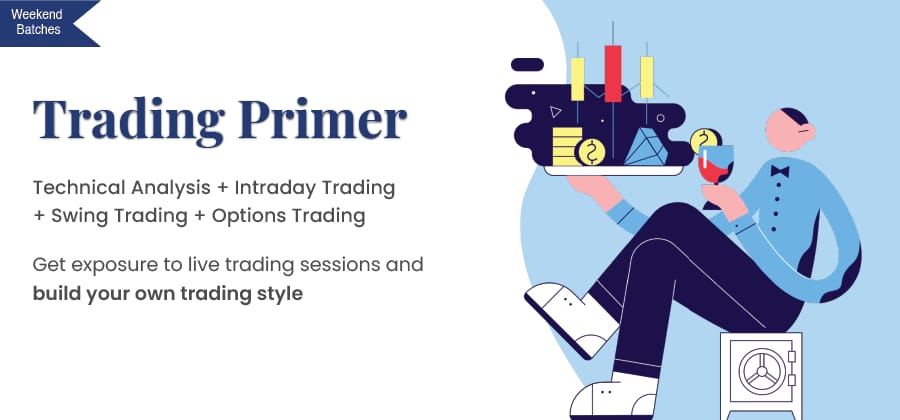
The Role of Psychology in Successful Trading
Trading psychology centers around the emotions and mental state that help decide success or failure in the trading business be it stocks, futures, options, commodities or currencies. Trading psychology represents various aspects of an individual’s behaviors that influence or creates a bias for their trading actions. Trading psychology is as important as other attributes such as knowledge, experience, and skill in determining trading success. Trading psychology is characterized primarily by the influence of greed and fear while making a trading decision. Trading psychology refers to a trader’s mindset during their time in the markets. It can determine the extent to which they succeed in securing a profit or it can provide an explanation as to why a trader incurred heavy losses.
How To Develop Trading Psychology
A trader uses market analysis to spot trading patterns. He determines when to buy and sell and where to buy and sell. Define his risk management rules and position sizing. Rules and guidelines to take profits or setting the target price.To manage your outcome and expectations you must realign your mental environment.
- Train your brain to think in terms of probabilities
- Never think in terms of absolute results
- Create a strong belief in your consistency as a trader
- Execute your trading system without any emotions
- Trust and believe in your study and don’t get distracted by what’s happening around you
Personalize Your Psychology
Trading psychology is different for every trader, as it is influenced by each individual’s own emotions and predetermined biases. Some of the emotions which impact trading are happiness, impatience, anger, fear and greed. Controlling our emotions during trading is tough. Rising prices are an illustration of greed in the markets and when prices are falling we see a sense of fear taking over. Fear and greed are very strong emotional feelings in trading that impact all traders, it affects both novice traders and seasoned professionals. I also face the emotions of fear and greed only daily basis as a day trader and also as a swing trader. How I am able to overcome this to a certain extent is to stick to your risk management rules and stop-loss and once targets are achieved book your profit.No trader can buy at the exact low and sell at the exact high. Don’t be greedy and take regular profits and control your fear by following your trade entry rules.
Professional trading starts with having an elaborate and well-designed trade plan. In my initial days of trading my trading results were erratic there was no consistency in the outcome and some trades were big losers. The reason was I did not have a trade plan, I opened the charts and just traded my thoughts and perception and was biased. How I overcame this and what made me a disciplined trader was my trade plan. A trading plan provides the same level of discipline and detailed attention to your trading business as you give to any business you manage. By documenting a trading plan, you know what works and how to avoid costly mistakes in your trading. Ask any successful trader who consistently makes money on a consistent basis; his answer will be he has a trading plan and trades according to the trade plan.
My Learnings After Years Of Trading
Three basic emotions control the market: patience, fear and greed. If you’re going to be a successful professional trader, you can’t afford to let your emotions control you. You must always be in control, and here are some methods to consider. Don’t second-guess yourself. If you stop believing in your system and/or if you lose your Patience, you’ll pull out too fast. When you pull out too fast, you lose profit. Earlier I used to book profit very early and then see prices going up. The mistake I was making was I was entering a trade as per my system when it triggered a buy or a short sell signal, but I used to exit much early before my trading system gave an exit signal. I overcame this by booking part of the profit at 2 times rewards and the remaining trailed my stop in profit as per the system.
Don’t wait for the “perfect trade”. There is no holy grail indicator or trading system. Like many beginner traders, I was also looking for the same and spent unnecessary time trying to find a holy grail system to make speculative gains. As i matured as a trader I realized that trading systems are built as per the market condition and you have different trading systems for different market conditions like bullish conditions, bearish condition, and a sideways trading market. What I do is in a sideways market apply retracement trading strategies, when markets are in momentum up or down deploy a moving average crossover trading system.
Avoid overconfidence and learn from your mistakes. Overconfidence in your trading skills and system may give you a false belief that your views and decisions are always right. A trader is successful because of his ability to accept defeat as graciously as he accepts victory. Analyze your trading activity understand the mistakes and apply this learning in future trades.
Conclusion
Profitable trading is tough and challenging but not impossible. More than 90% of traders fail and quit trading. The blame is always on the market, which is wrong. Traders are unsuccessful because they don’t work on acquiring the skill and education to be successful. One key to success is to identify strategies and trade setup that provides better return as compared to negative returns. Many traders fail in trading because they fail to adapt to changing market conditions and the environment.





